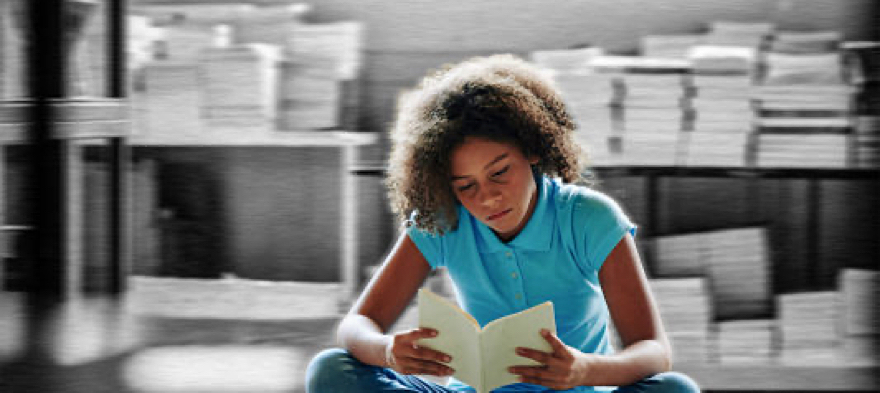
When Abraham Lincoln signed the Emancipation Proclamation, this marked the end of slavery in the United States … that is what a lot of people learned in school. Honestly, it is more nuanced than that. The Emancipation Proclamation was issued to free enslaved Africans in the Confederate states.
Even if students learned that component, many of them, including me, did not learn about the rest of the story. They did not learn that it was over two and a half years later when enslaved Africans in Galveston, Texas would be told they were free. These Black men and women worked for free for two and half more years than they had to (and they never should’ve been enslaved at all) and many students never learned about this.
The enslaved Africans learned of their freedom on June 19, 1865. June 19 got smashed together into the word "Juneteenth." This holiday is also known as "Emancipation Day," and it's the reason why some Black people do not celebrate or acknowledge July 4. It is hard to celebrate and watch fireworks knowing your ancestors were enslaved. (Although Laurie Halse Anderson is not a Black author, I recommend her "Seeds of America Trilogy: Chains/Forged/Ashes,” which gives you the perspective of the American Revolution from enslaved Black youth.)
“Liberty and justice for all” did not come for Black people when the Declaration of Independence was signed on July 4, 1776. It did not come when Abraham Lincoln issued the Emancipation Proclamation on January 1, 1863. It didn’t come in Galveston, Texas on June 19, 1865. And, it’s still not here today in 2020!
For Juneteenth 2020, I am challenging educators to emancipate themselves from this colonized curriculum that tells history solely through the lens of White people. [pullquote]For real change to happen in society, we have to change the way we are teaching our students, all students.[/pullquote]
Unfortunately, with the social unrest and demands for justice after the murder of George Floyd, some educators only think they need to take action if they have Black students in their class or school. Even schools with no Black students need a liberated curriculum free from the grips of white supremacy and colonization. Those students may move to another city or town that is more diverse and become just like Amy Cooper—threatened by the presence of a Black man. [pullquote position="right"]All educators must be engaged in this work.[/pullquote]
Many educators use the summer as a time to prepare for the next school year. I am challenging teachers to go through their classroom libraries and evaluate the books that are on the shelves. Look through previous lesson plans.
All educators need to check themselves and their lesson plans. We all, including myself, can and should do better.
Black parents many times have the burden of teaching additional lessons at home. [pullquote]I wanted a liberated, anti-racist, decolonized education for my children. That’s how my sons learned about Juneteenth.[/pullquote] I am hoping for the day where I don’t have to reteach history at home. This Juneteenth is a good time to start. We can get it right, so there are not more students learning as adults what they should have learned in school.
Shawnta (Shawn-tay) S. Barnes, also known as Educator Barnes, is a married mother of identical twin boys. She navigates education from not only the educator’s perspective but also the parent’s perspective. She has been an educator for nearly two decades. Shawnta works with K-12 schools, universities, & education adjacent organizations through her education consulting business Blazing Brilliance. She is an adjunct college professor, supervises student teachers, Indy Kids Winning Editor-in-Chief, Brave Brothers Books Co-founder, & CEO, and Brazen Education Podcast host. She holds five education licenses: English/language arts 5-12, English to speakers of other languages P-12, library/media P-12, reading P-12, and school administration P-12, and she has held a job in every licensed area. Previously, she has served as a school administrator, English teacher, English learners teacher, literacy coach, and librarian. She won the 2019 Indiana Black Expo Excellence in Education Journalism Award. In 2023, she completed her doctorate in Literacy, Culture, and Language Education with a minor in Learning Sciences. She is an urban gardener in her spare time and writes about her harvest-to-table journey at gardenershicole.com. To learn more about Shawnta, visit educatorbarnes.com.
The fight for educational equity has never been just about schools. The real North Star for this work is providing opportunities for each child to thrive into adulthood. This means that our advocacy...
Your donation will support the work we do at brightbeam to shine a light on the voices who challenge decision makers to provide the learning opportunities all children need to thrive.
Ed Post is the flagship website platform of brightbeam, a 501(c3) network of education activists and influencers demanding a better education and a brighter future for every child.
© 2020–2024 brightbeam. All rights reserved.